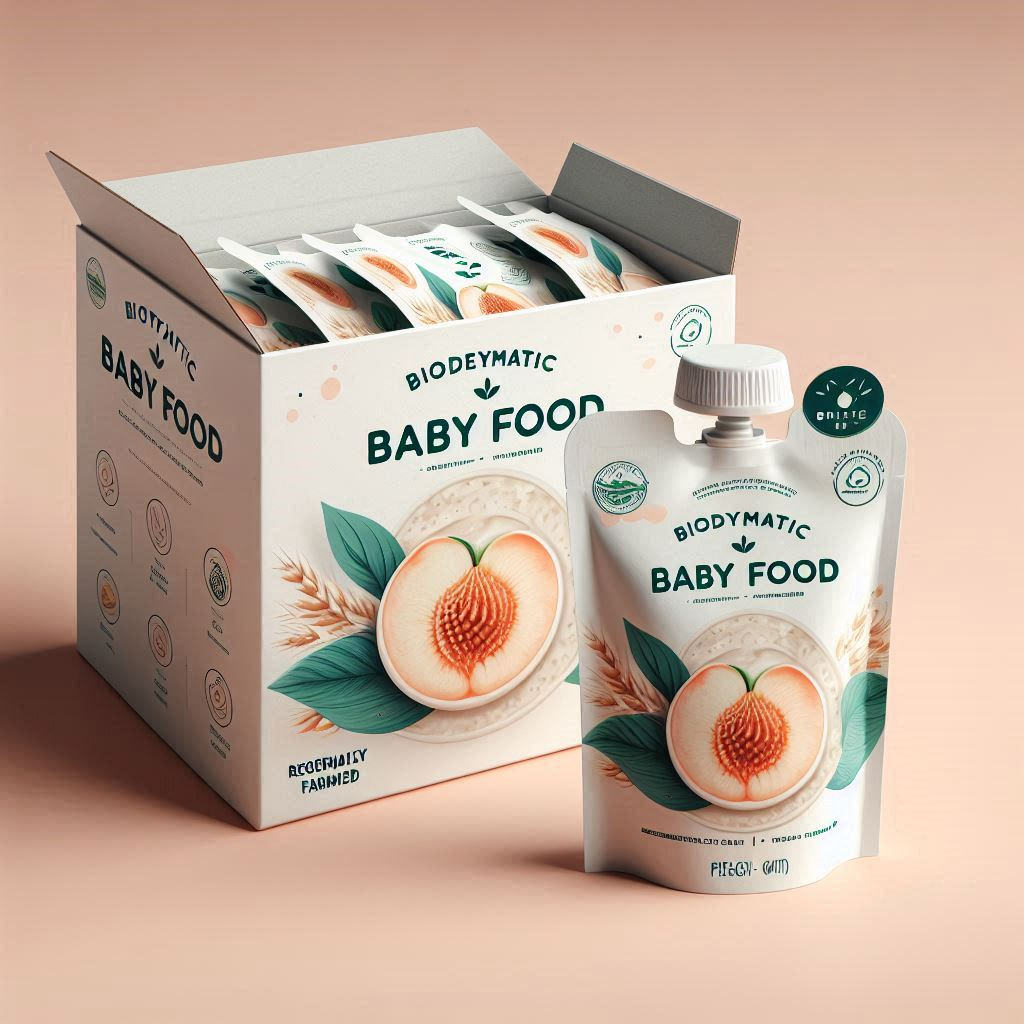Biodynamic Baby Food: Reviews
As a parent, you want nothing but the best for your little one, especially when it comes to their nutrition. In recent years, a new trend has been gaining traction in the world of baby food: biodynamic baby food. This innovative approach to infant nutrition goes beyond organic, offering a holistic and sustainable option for health-conscious parents. But what exactly is biodynamic baby food, and why is it creating such a buzz?
Quick Answer: What is Biodynamic Baby Food?
Biodynamic baby food is made from ingredients grown using biodynamic farming practices, which treat the farm as a living organism. This method goes beyond organic by focusing on soil health, biodiversity, and natural cycles to produce nutrient-dense, pesticide-free foods for babies.
The Roots of Biodynamic Farming
To truly understand biodynamic baby food, we need to dig into the soil of biodynamic farming. This approach to agriculture isn’t just a modern fad – it has deep roots stretching back to the 1920s. Austrian philosopher Rudolf Steiner laid the groundwork for biodynamic farming, envisioning a method that would heal the earth while producing nutritious food.
Biodynamic farming is like organic farming’s older, wiser sibling. It shares the same DNA – avoiding synthetic chemicals and GMOs – but takes things a step further. Here’s how:
- Holistic Approach: The farm is treated as a single, living organism.
- Self-Sustaining Ecosystem: Farmers aim to create a closed-loop system, producing their own compost, seeds, and animal feed.
- Biodiversity: A variety of plants and animals are integrated to create a balanced ecosystem.
- Natural Rhythms: Planting and harvesting are often done according to lunar and cosmic rhythms.
Read more: What Rides Can Infants Ride at Disney World
Why Choose Biodynamic Baby Food?
Now, you might be wondering, “Why should I choose biodynamic baby food for my little one?” Let’s break it down:
- Purity: Biodynamic farms are free from synthetic pesticides, herbicides, and fertilizers. This means your baby’s food is as pure as it gets.
- Nutrient Density: The focus on soil health in biodynamic farming often leads to more nutrient-dense crops. More nutrients per bite for your growing baby!
- Sustainability: By choosing biodynamic, you’re supporting a farming method that aims to heal and protect our planet.
- Taste: Many people report that biodynamic produce simply tastes better. Happy taste buds make for happy babies!
From Farm to Baby’s Plate: The Biodynamic Journey
Let’s follow the journey of a biodynamic carrot from the farm to your baby’s plate:
- Seed Selection: Farmers choose heirloom or open-pollinated seeds, often saved from previous crops.
- Soil Preparation: The soil is nourished with biodynamic preparations made from natural materials like herbs and minerals.
- Planting: Seeds are planted according to the biodynamic calendar, which considers lunar and cosmic rhythms.
- Growing: Plants grow in a diverse ecosystem, surrounded by companion plants and beneficial insects.
- Harvesting: Crops are harvested at peak ripeness, often by hand to ensure quality.
- Processing: The carrots are washed and prepared in facilities that maintain biodynamic standards.
- Packaging: The baby food is packaged, often in eco-friendly materials.
- Delivery: The food makes its way to stores or directly to your doorstep.
- Feeding Time: Your baby enjoys a spoonful of nature’s best!
Read more: What is Infant Bunting?
Biodynamic Baby Food Brands: A Closer Look
Several companies have embraced the biodynamic philosophy, offering parents peace of mind when it comes to feeding their little ones. Let’s explore some of the top brands:
1. White Leaf Provisions
White Leaf Provisions is a pioneer in the biodynamic baby food market. Their products are:
- Demeter-certified biodynamic
- USDA organic
- GMO-free
- Free from added sweeteners, flavorings, and preservatives
White Leaf partners with small biodynamic farms, focusing on healing the planet while providing nutrient-rich foods for babies.
2. Holle
Holle is a well-established European brand with decades of experience in biodynamic baby food. They offer:
- A wide range of products, from infant formula to purees
- Strict adherence to biodynamic farming and processing standards
- A commitment to environmental sustainability
3. Lebenswert
Another European brand, Lebenswert focuses on simple, pure ingredients. Their products are:
- Organic and biodynamic
- GMO-free
- Made using sustainable farming practices
Biodynamic vs. Organic: Spotting the Difference
While both biodynamic and organic farming avoid synthetic chemicals and GMOs, biodynamic takes things a step further. Here’s a handy comparison:
| Feature | Organic | Biodynamic |
|---|---|---|
| Synthetic Pesticides | No | No |
| GMOs | No | No |
| Soil Health Focus | Yes | Yes, with additional practices |
| Holistic Farm Management | Sometimes | Always |
| Biodiversity Emphasis | Yes | Yes, stronger focus |
| Use of Biodynamic Preparations | No | Yes |
| Consideration of Cosmic Rhythms | No | Yes |
The Biodynamic Baby Food Experience: A Personal Story
When my daughter, Lily, was ready to start solids, I dove headfirst into researching the best options for her. That’s when I stumbled upon biodynamic baby food. Intrigued by the concept, I decided to give it a try.
Our first biodynamic adventure was with a jar of pureed pears from White Leaf Provisions. As I spooned the first bite into Lily’s mouth, I held my breath. Would she like it? The answer came quickly as her eyes lit up and she eagerly opened her mouth for more.
Over the next few months, we explored a variety of biodynamic options. The sweet potatoes had a richness I’d never tasted before, and the apple sauce was so flavorful it could have passed for dessert. But the real test came when we visited my parents.
“What’s this fancy baby food?” my dad asked, eyeing the glass jar suspiciously.
“It’s biodynamic, Dad,” I explained. “Want to try it?”
Hesitantly, he took a small taste of the carrot puree. His eyebrows shot up in surprise.
“Well, I’ll be,” he chuckled. “If all vegetables tasted like this, I might actually eat them!”
That moment solidified my choice. Not only was I providing Lily with nutritious, planet-friendly food, but it was delicious enough to win over even the most skeptical taste buds.
Introducing Biodynamic Baby Food: Tips and Tricks
Ready to start your biodynamic baby food journey? Here are some tips to help you along the way:
- Start Simple: Begin with single-ingredient purees like apple or sweet potato.
- Mix It Up: Once your baby is used to individual flavors, try combining them. A biodynamic pear and spinach blend can be a hit!
- Texture Progression: As your baby grows, gradually introduce more texture. Mashed banana is a great transitional food.
- Make It Fun: Use colorful, baby-safe utensils to make mealtime exciting.
- Be Patient: Remember, it can take up to 15 tries for a baby to accept a new food. Don’t give up!
The Future of Baby Nutrition: Is Biodynamic the Way Forward?
As we become more aware of the impact our food choices have on both our health and the planet, biodynamic baby food is positioning itself as a forward-thinking solution. It offers a triple win: nutritious food for babies, sustainable practices for the planet, and peace of mind for parents.
While biodynamic products may come with a higher price tag, many parents find the benefits worth the investment. As demand grows, we may see more affordable options hitting the market, making this super-natural choice accessible to more families.
Your Baby’s Biodynamic Journey
Choosing biodynamic baby food is more than just a nutritional decision – it’s a statement about the world you want your child to grow up in. It’s about nourishing your baby with nature’s best while supporting farming practices that heal and protect our planet.
Remember, every spoonful of biodynamic goodness is a step towards a healthier future for your baby and for Mother Earth. So why not give it a try? Your baby’s taste buds (and the planet) might just thank you!
Have you tried biodynamic baby food? What was your experience? Share your thoughts and join the conversation about nurturing our little ones and our planet, one biodynamic bite at a time!

Jessica Winter is a passionate parenting blogger with two years of experience guiding new and seasoned parents through the joys and challenges of raising babies. Her insightful posts blend personal anecdotes with expert advice to offer a warm and practical perspective on modern parenting.

